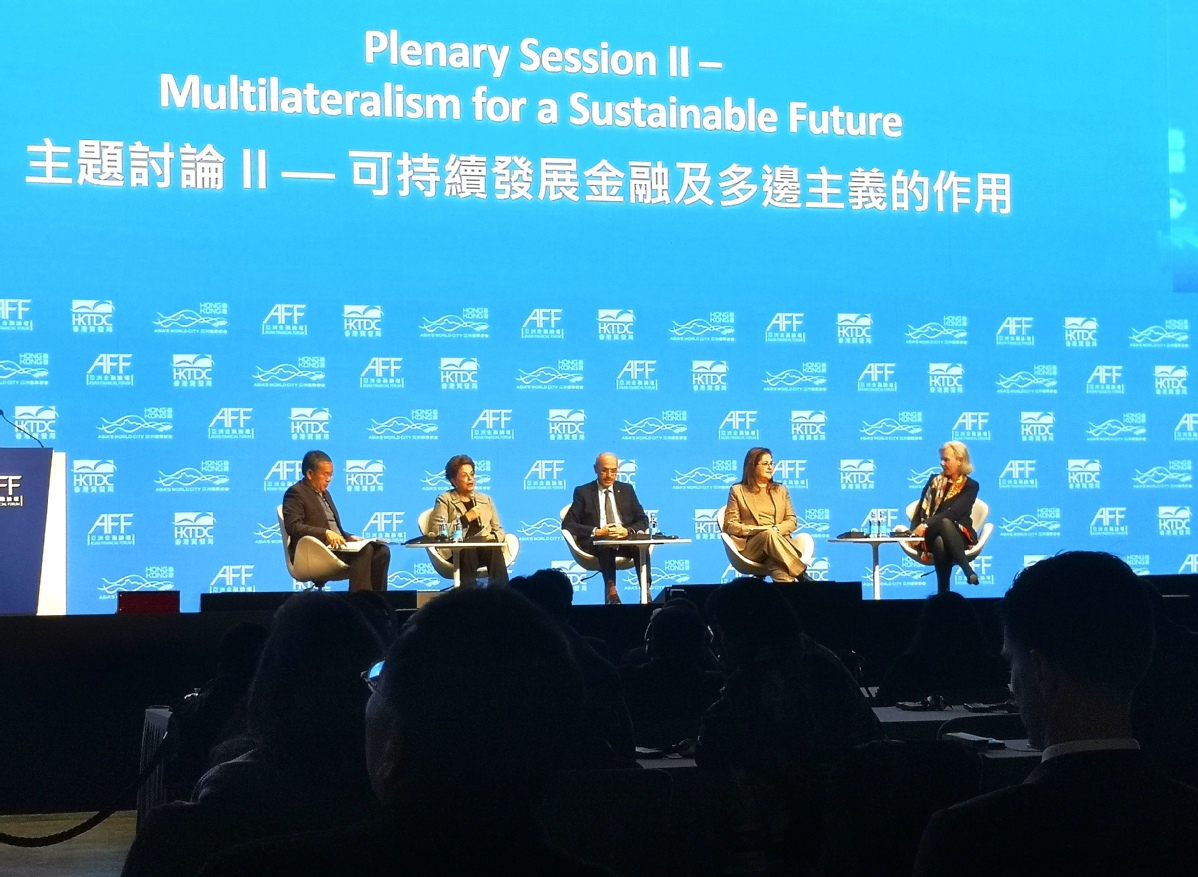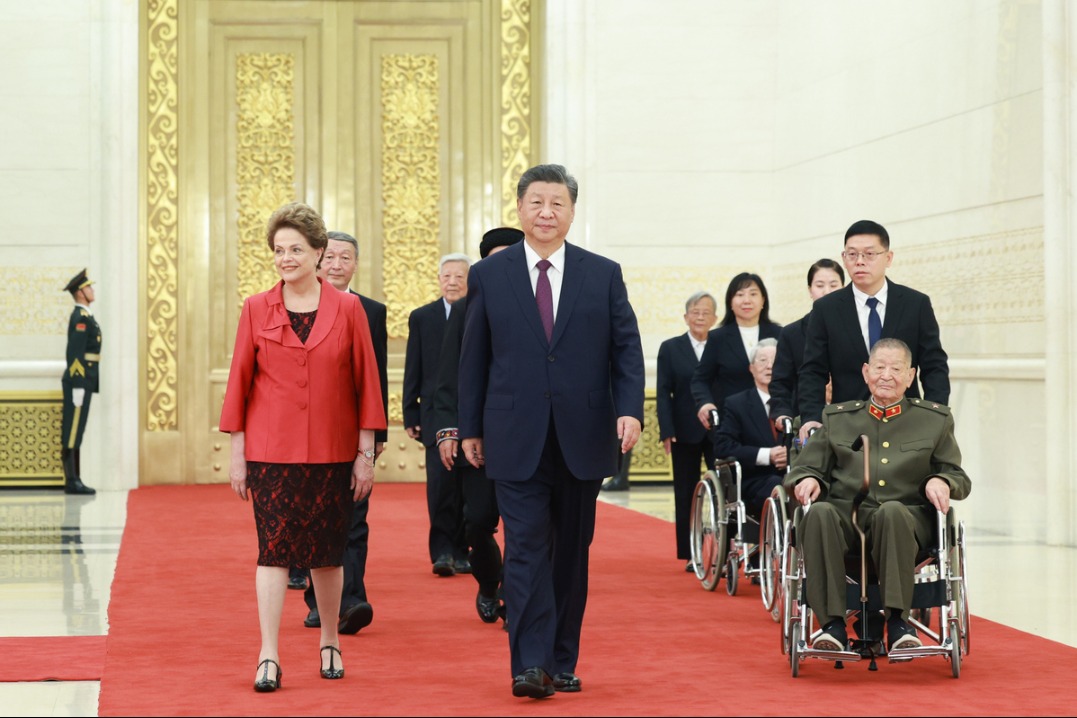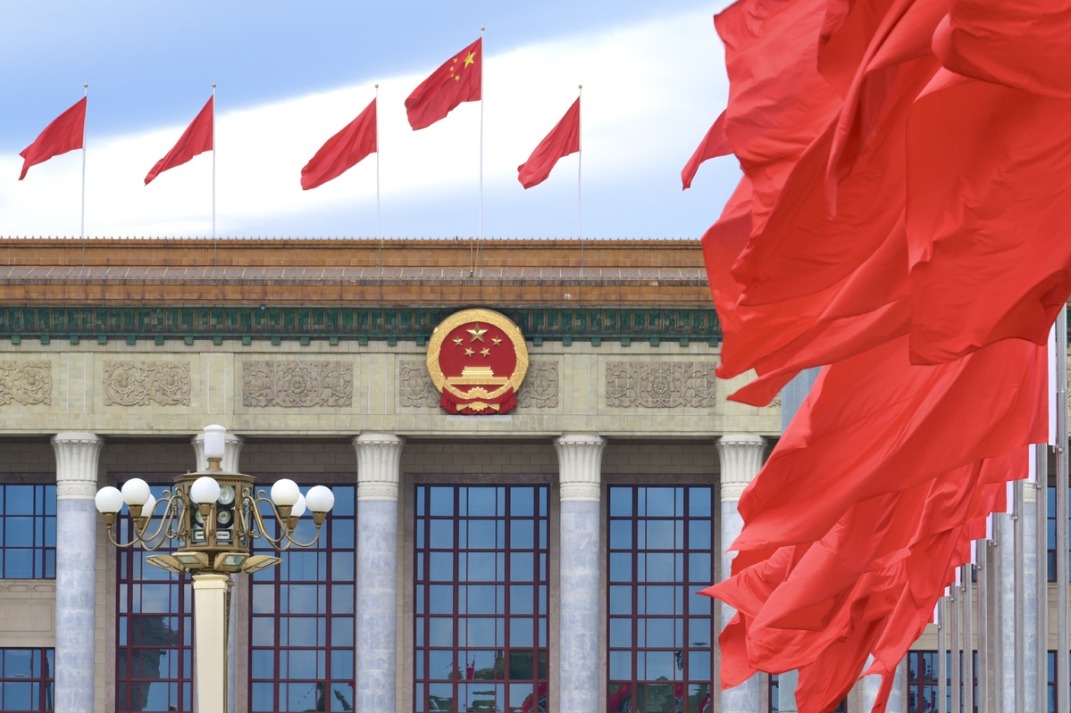AFF panelists highlight debt sustainability and other problems facing developing nations
By XU WEIWEI in Hong Kong | chinadaily.com.cn | Updated: 2024-01-24 23:46

Financial sustainability among developing nations is crucial for joint global efforts to tackle issues such as fighting climate change, according to financing leaders at a forum in Hong Kong on Jan 24.
On the opening day of the 17th Asian Financial Forum, a two-day event themed "Multilateral Cooperation for a Shared Tomorrow", participants in a session discussed the importance of fiscal stability within nations to advance important global agenda.
Chairing the session, Christopher Hui, secretary for financial services and the treasury of the Hong Kong Special Administrative Region, said even after years of rapid development, it still feels like a new and under-explored area.
Dilma Rousseff, president of New Development Bank, the Shanghai-headquartered multilateral development bank established by the BRICS states, emphasized debt sustainability.
She said the fact is that when developing countries borrow money, they must pay much higher interest rates to the developed countries, even without considering the cost of exchange rate changes.
For example, entities in African countries borrow at a rate that is four times higher than those in the United States and even eight times higher than those of Germany, Rousseff said.
"It is a consensus that we need to bridge this huge financial gap," she said.
Hala Elsaid, minister of planning and economic development of Egypt, highlighted the significance of debt sustainability. During the post-pandemic period, the issue has emerged as a critical challenge, especially for developing countries, in the wake of rising debt levels and changing global financial conditions, she said.
According to the minister, developing countries' external debt amounted to $8.7 trillion in 2022. "The increase in global interest rates, a consequence of monetary policy tightening by central banks like the (US) Federal Reserve and the European Central Bank, has escalated debt servicing costs, particularly for countries with foreign currency-denominated debts," she said.
The minister noted that developing economies, constrained by limited fiscal space and structural difficulties, continue to struggle to fund industrial and innovation policies. The growing technological divide could further hinder the ability of developing countries to strengthen their productive capacities and move closer to realizing the sustainable development goals (SDGs), she added.
Apart from debt, Elsaid also mentioned that, at the midpoint of the implementation of the 2030 Agenda for Sustainable Development, the world remains vulnerable to disruptive shocks, including a rapidly unfolding climate crisis and escalating conflicts.
The topic of sustainability and multilateralism is very timely, said Muhammad Sulaiman Al Jasser, president of the Islamic Development Bank, a multilateral development finance institution based in Jeddah, Saudi Arabia.
"The developmental challenges facing the member countries of my institution and other institutions are immense," he said, adding that finance takes the center stage.
"I believe that now we need all the multilateral development institutions to pool not only the resources, but the expertise in order to bring about the change that is necessary, and it's not just the environment," he said.
Dr Alexandra Jour-Schroeder, deputy director-general of Directorate‑General for Financial Stability, Financial Services and Capital Markets Union, European Commission talked about how the European Union has been able to pool more private funding into green projects so far for climate sustainability.
On how to bring investors to green initiatives, she said that this is normally done by disclosures, or giving information for investors to learn about what they should do, what they want and they could do.
vivienxu@chinadailyapac.com
























